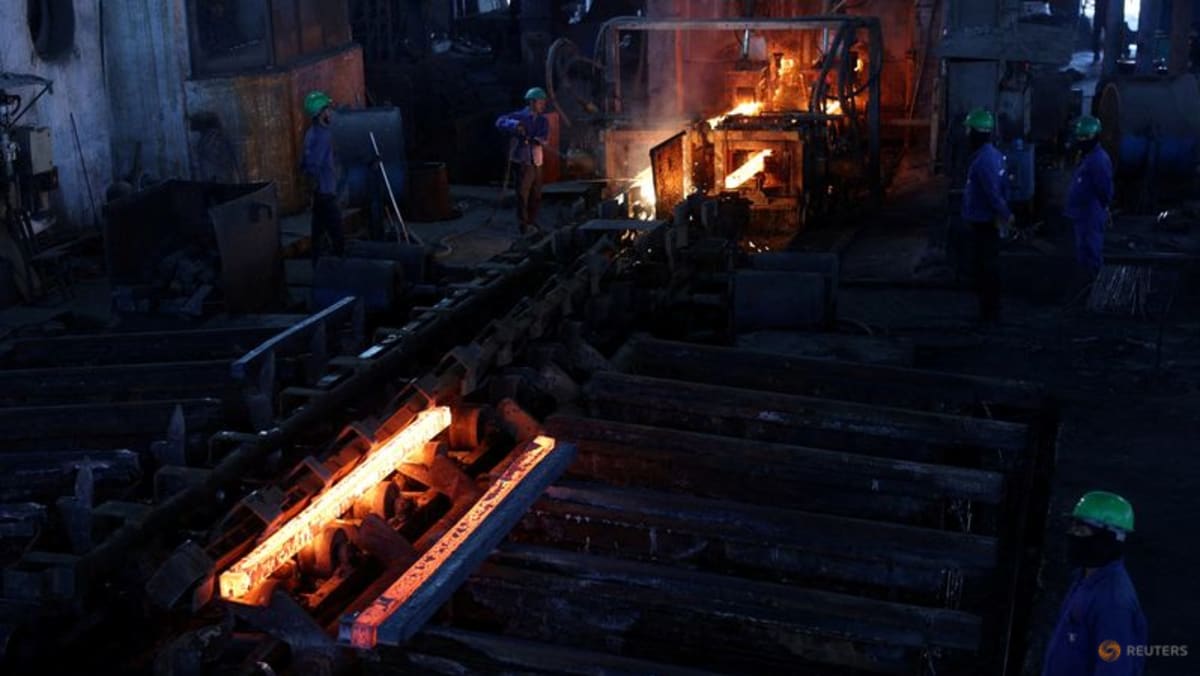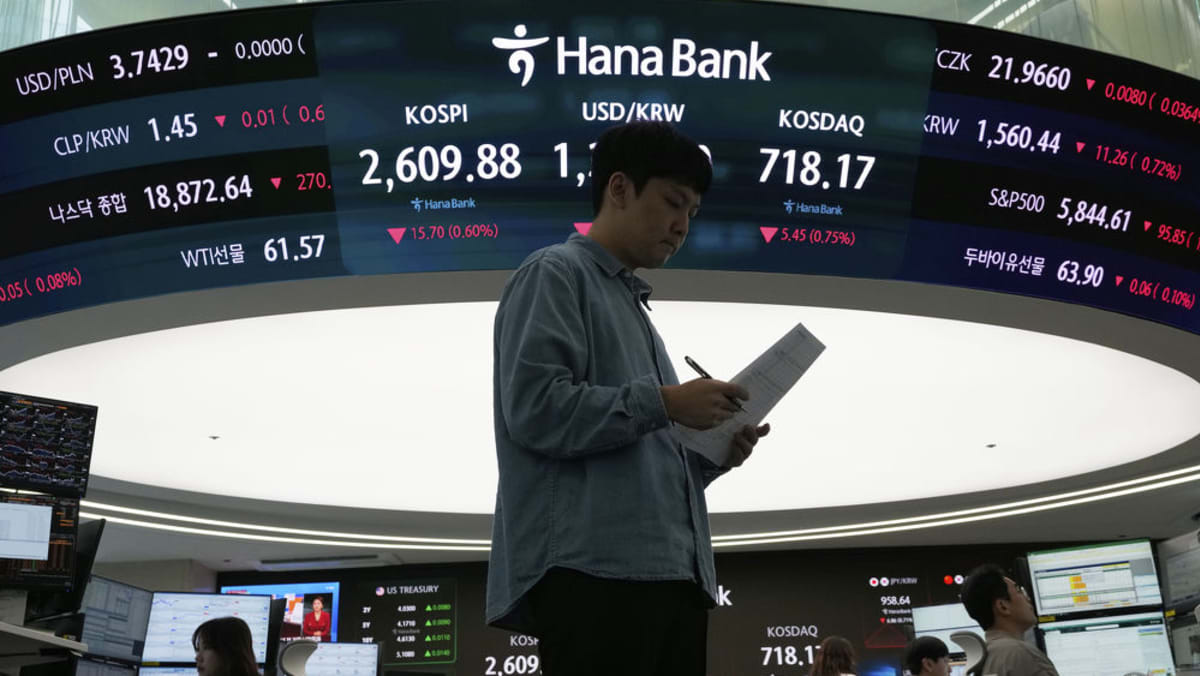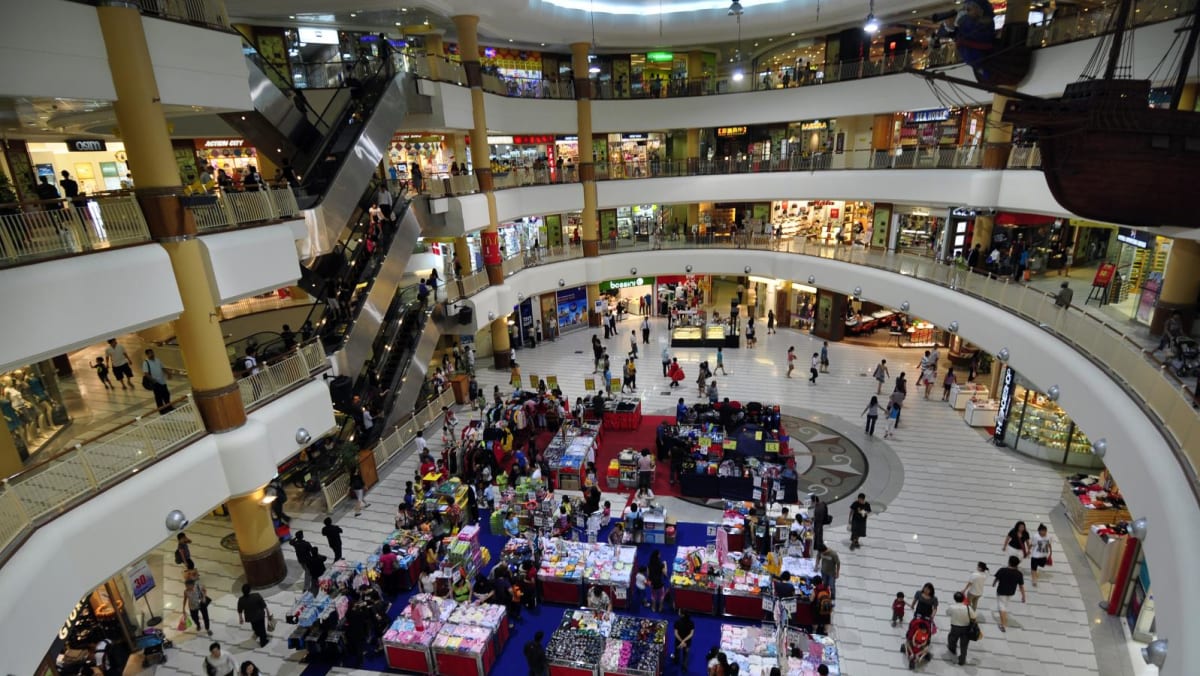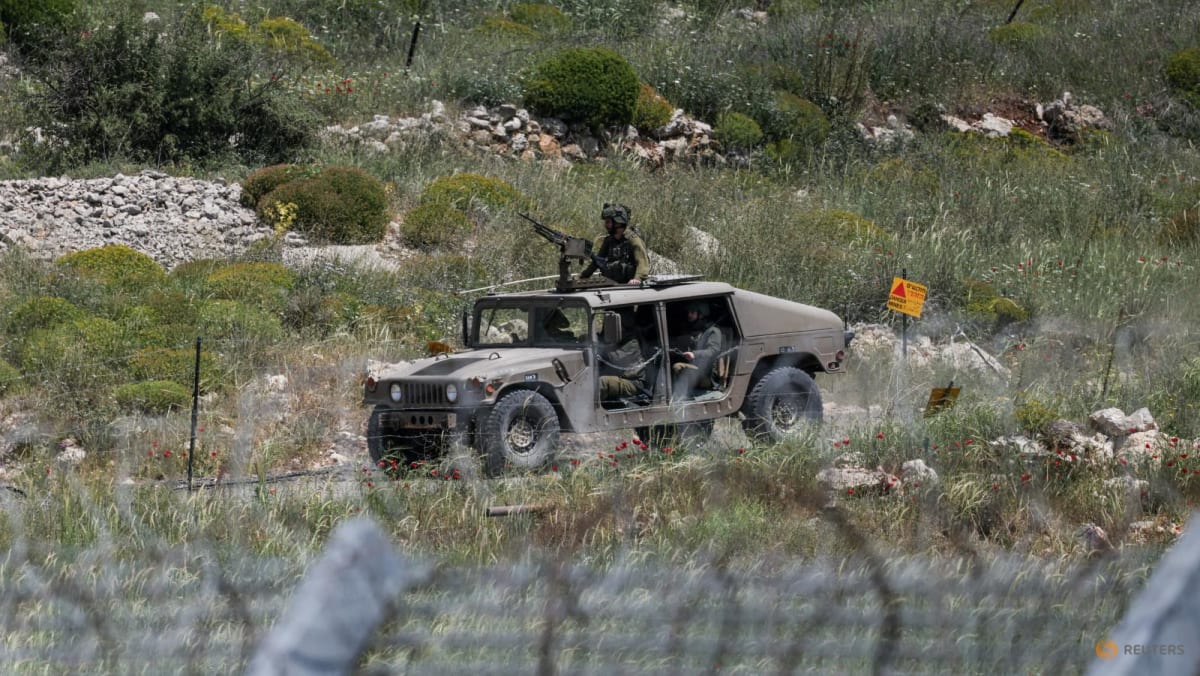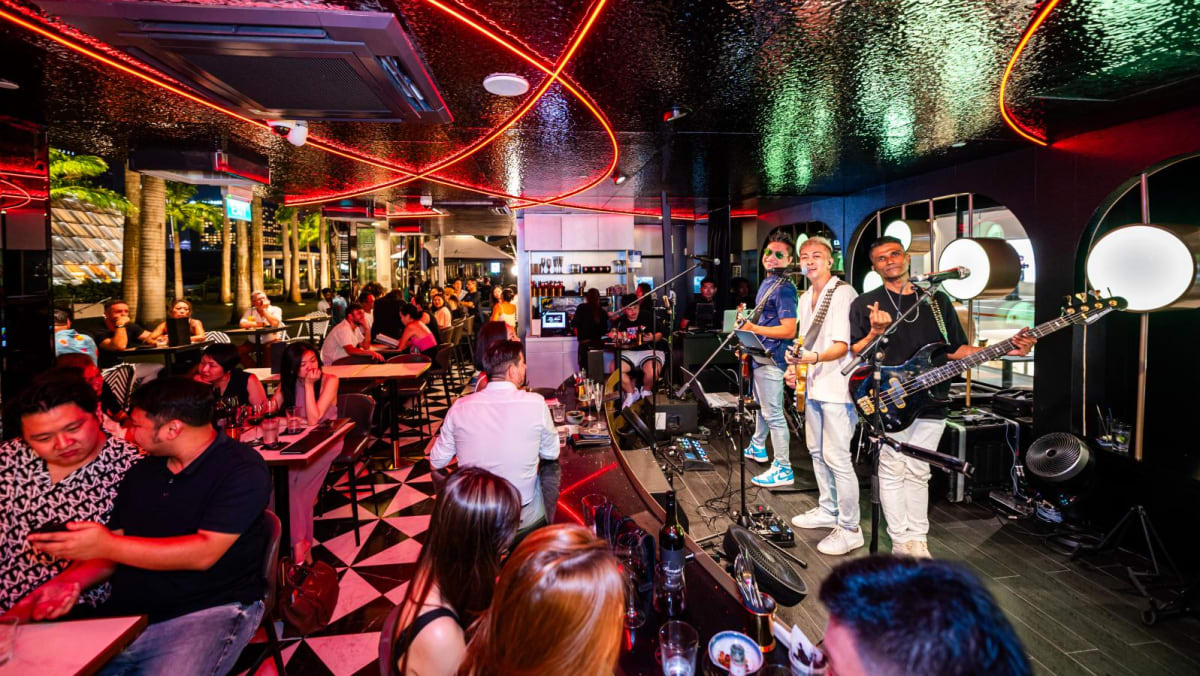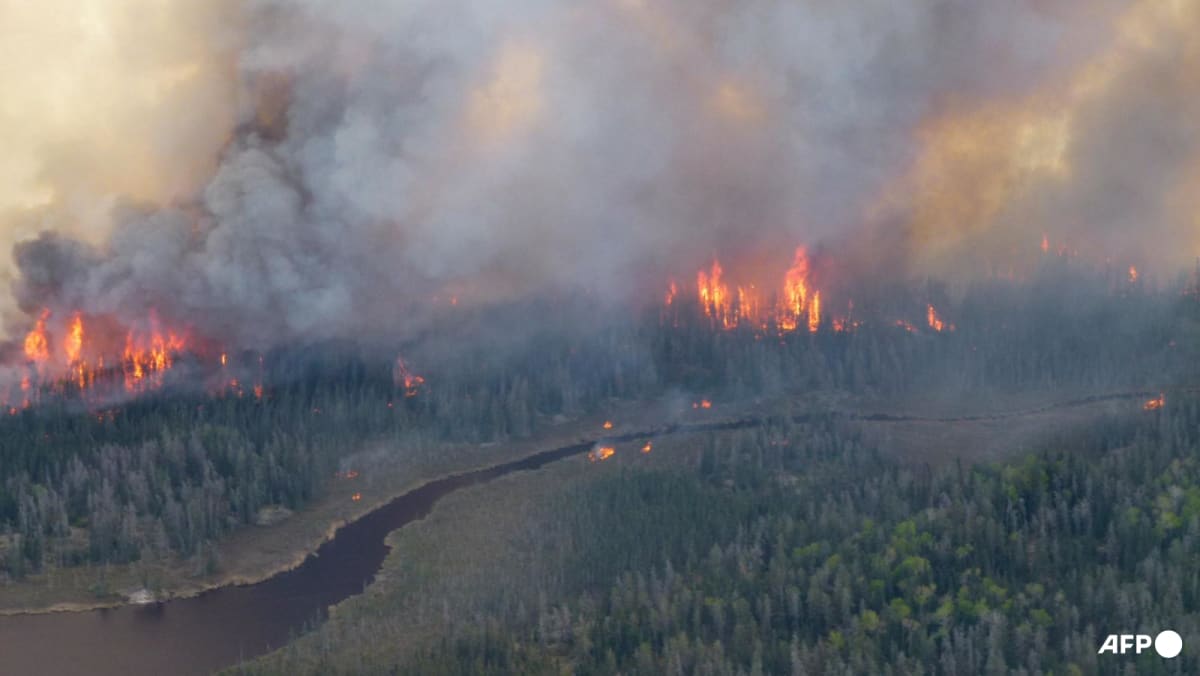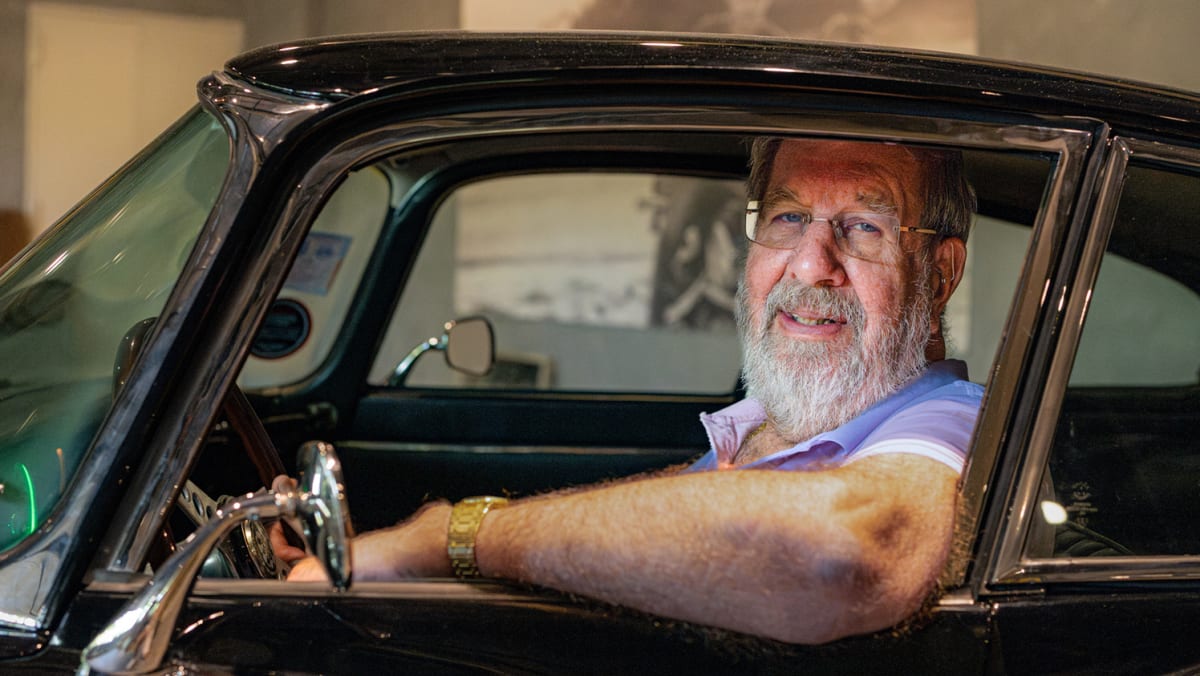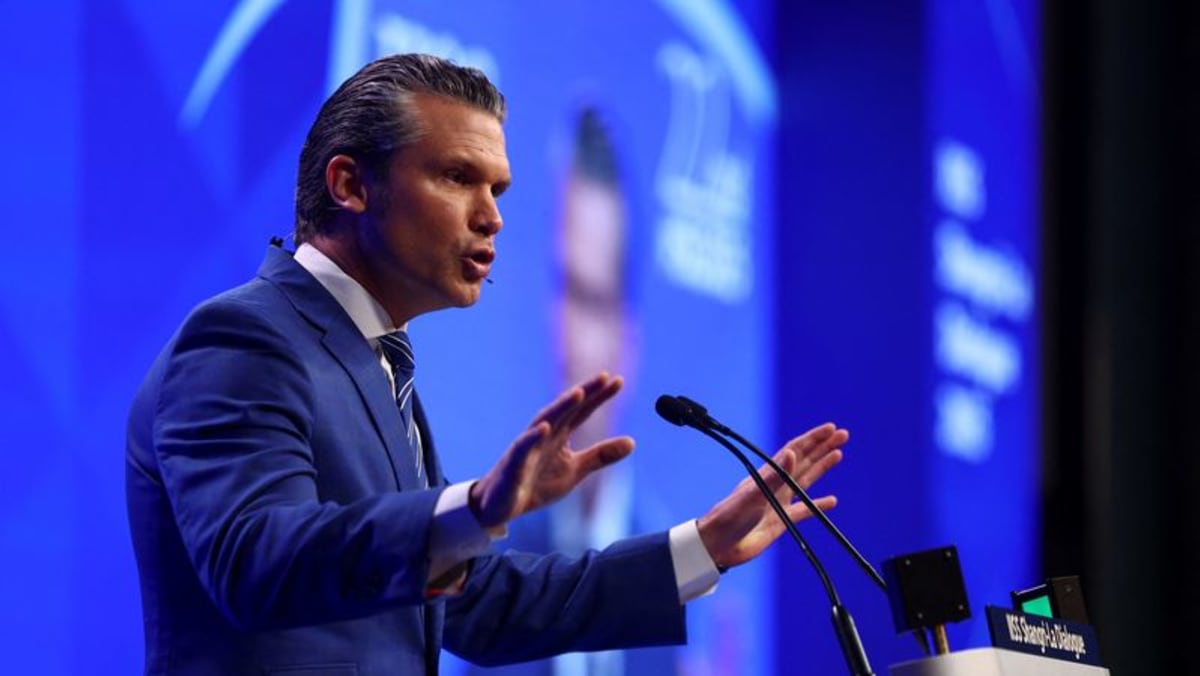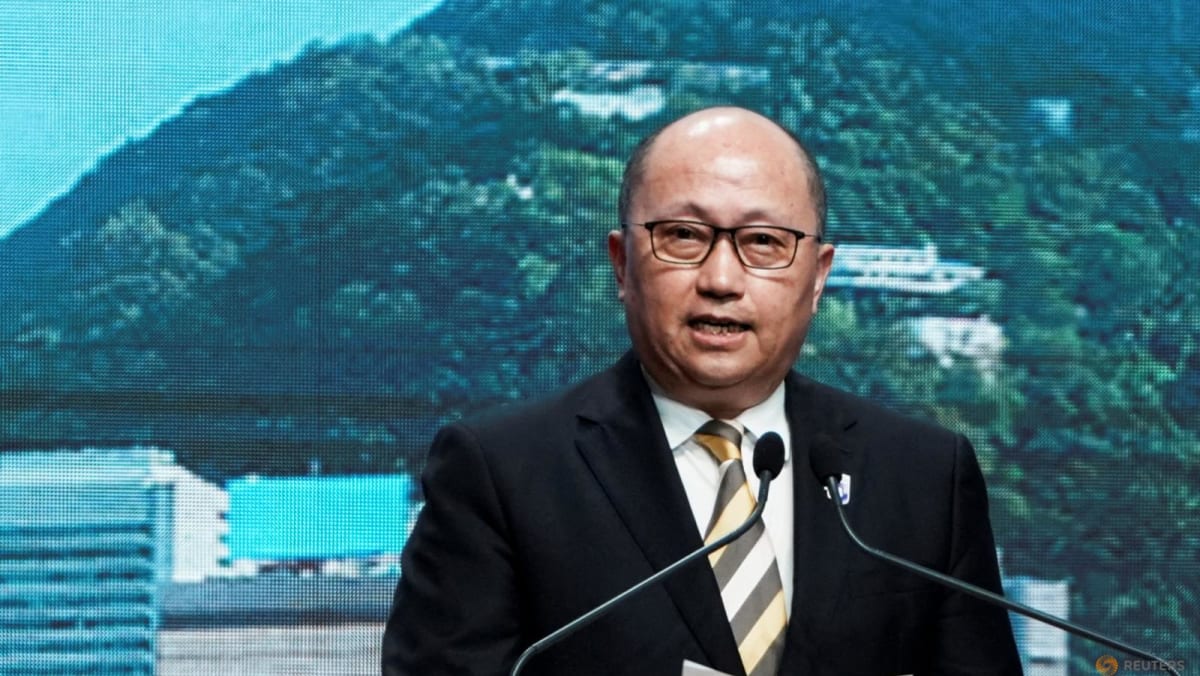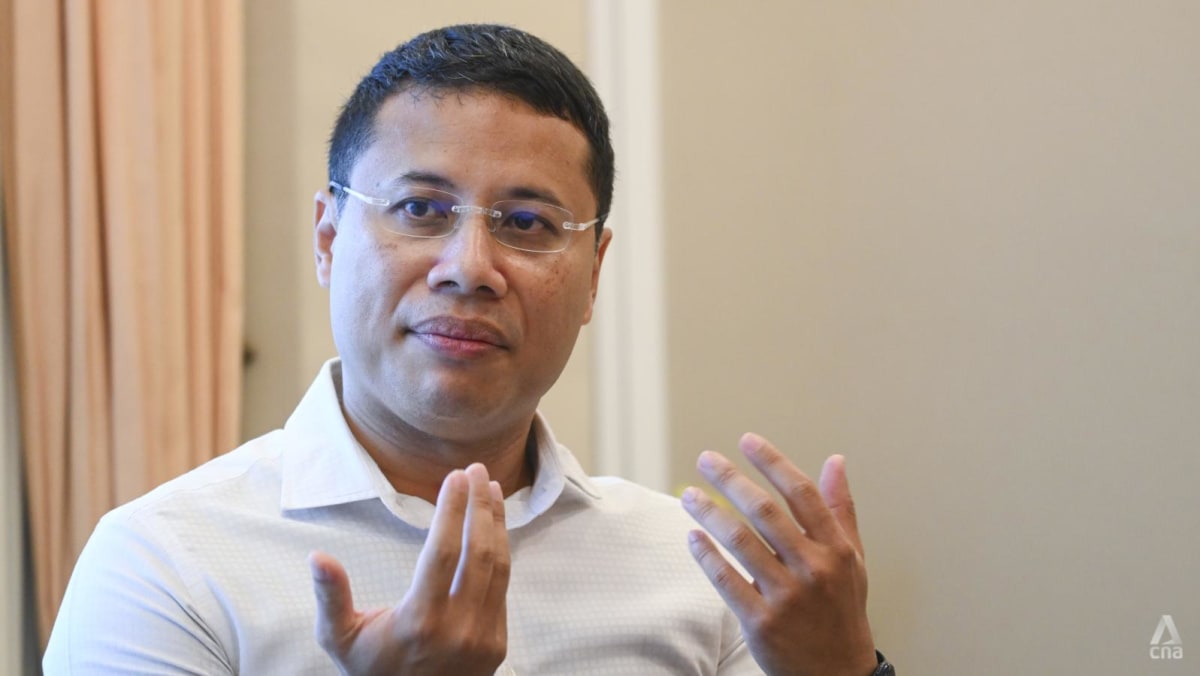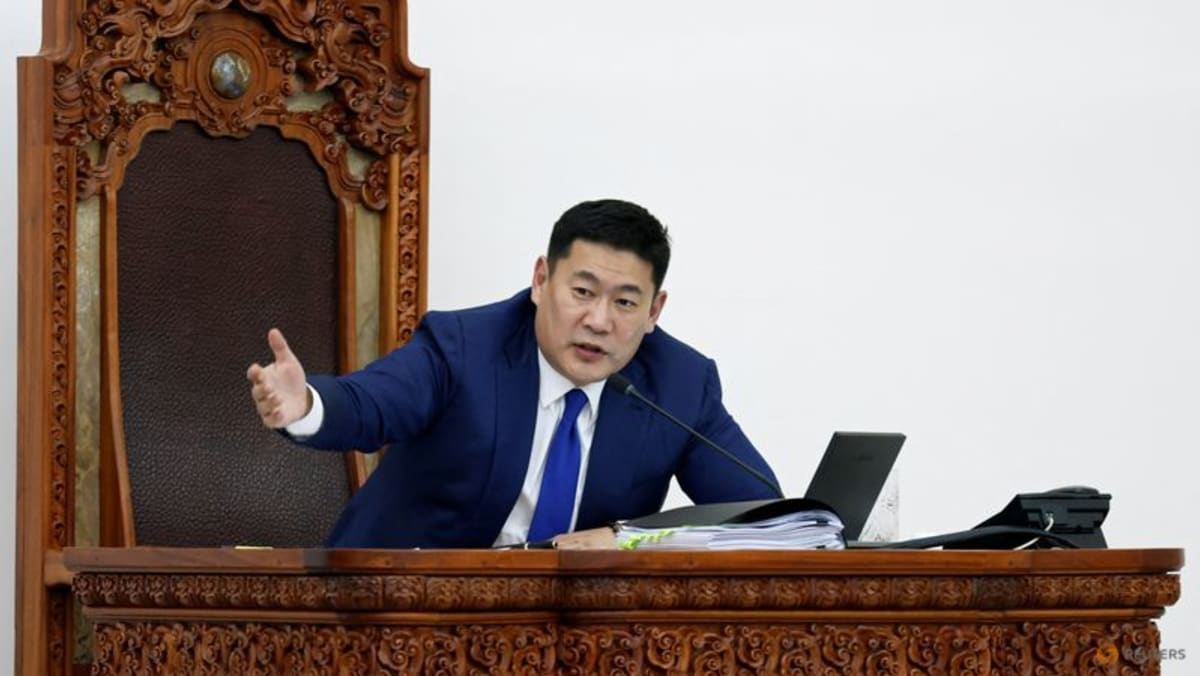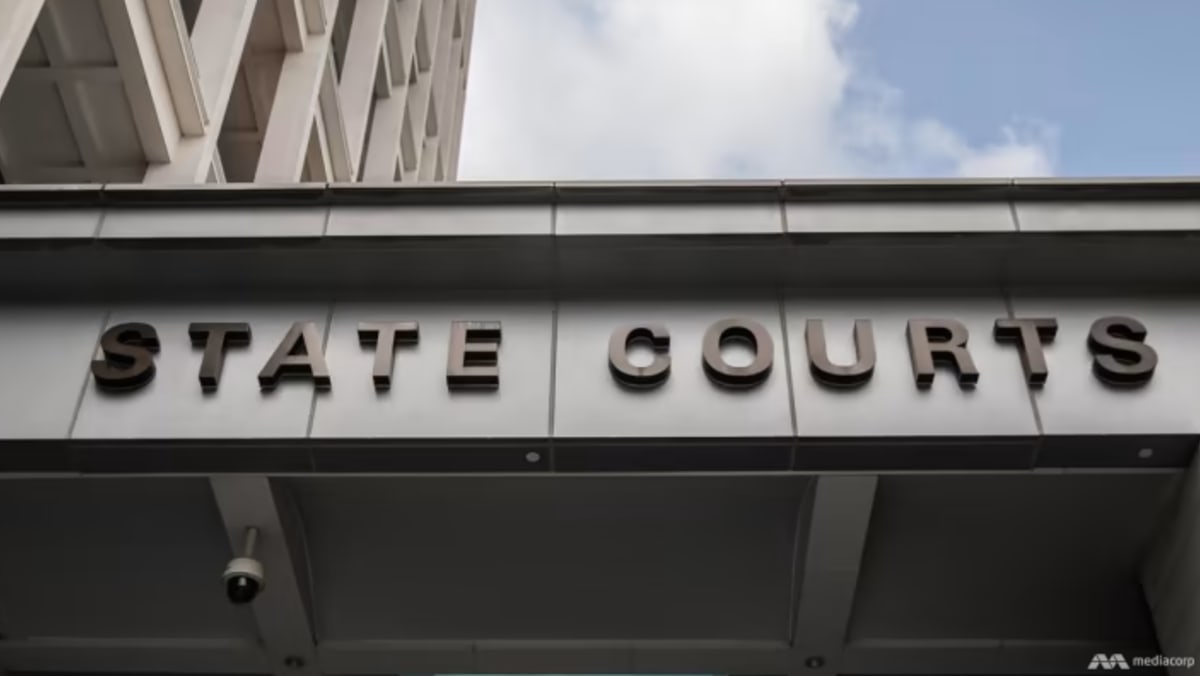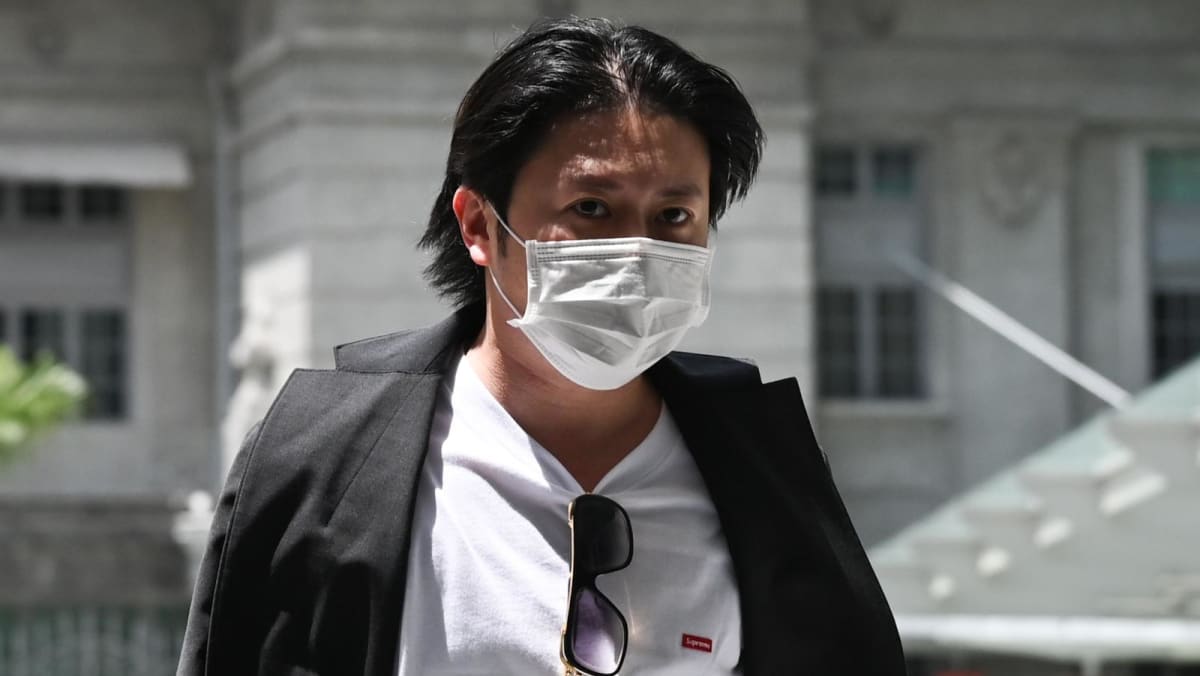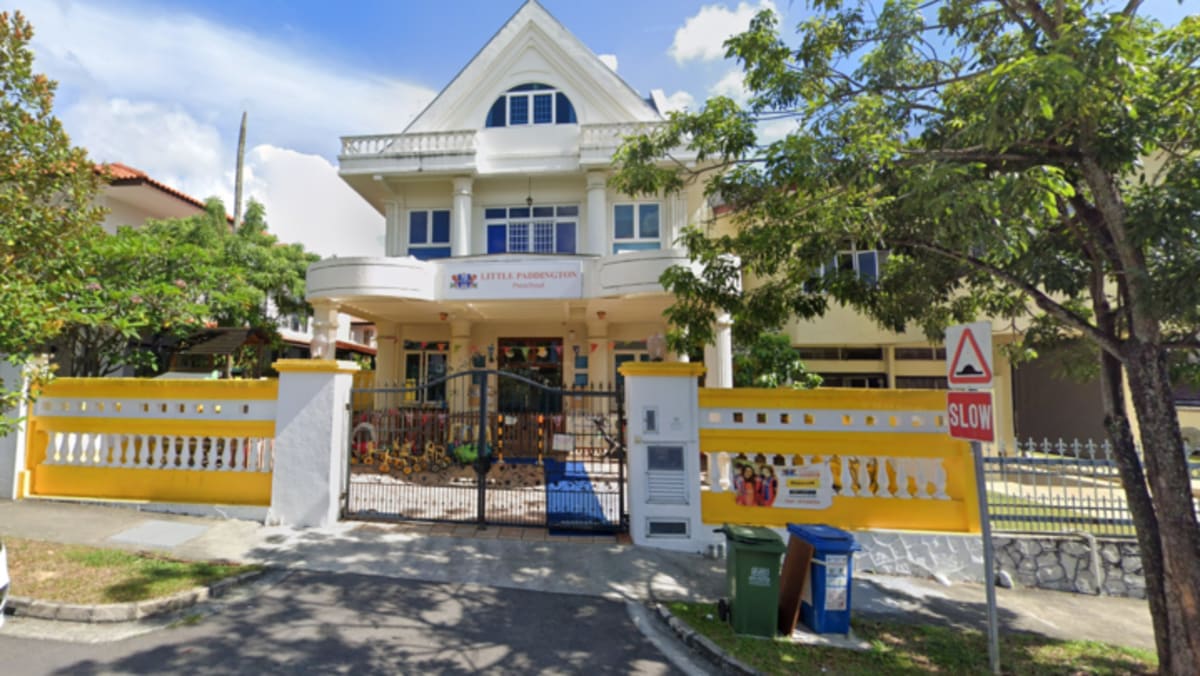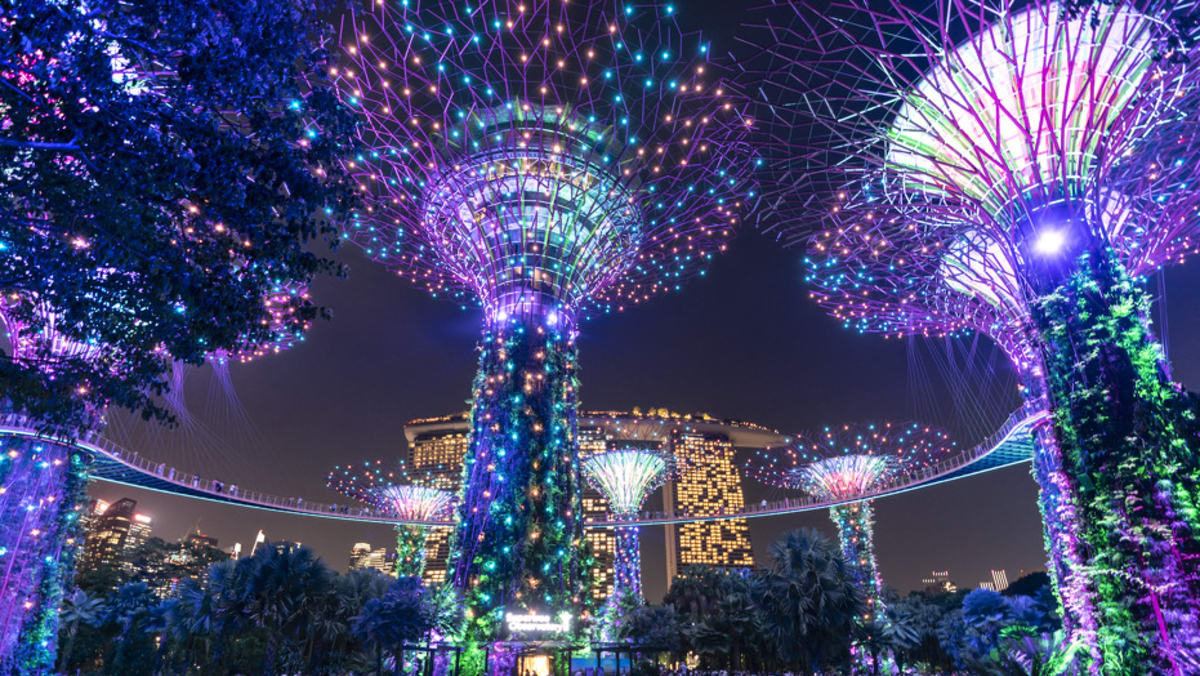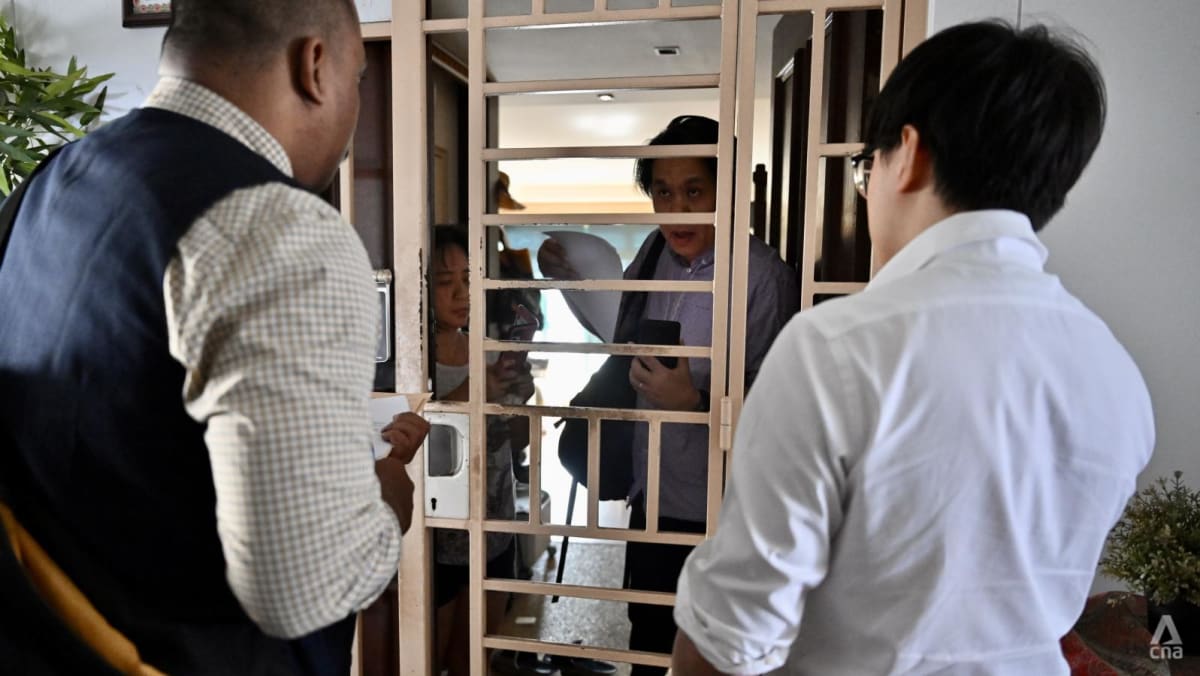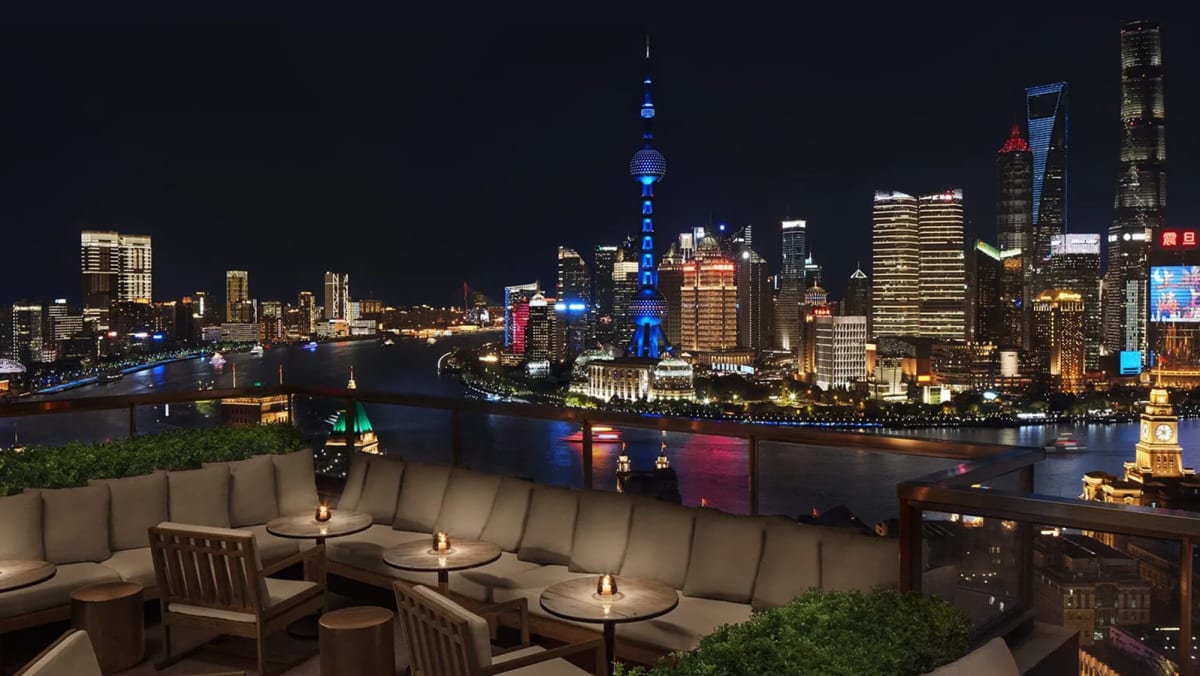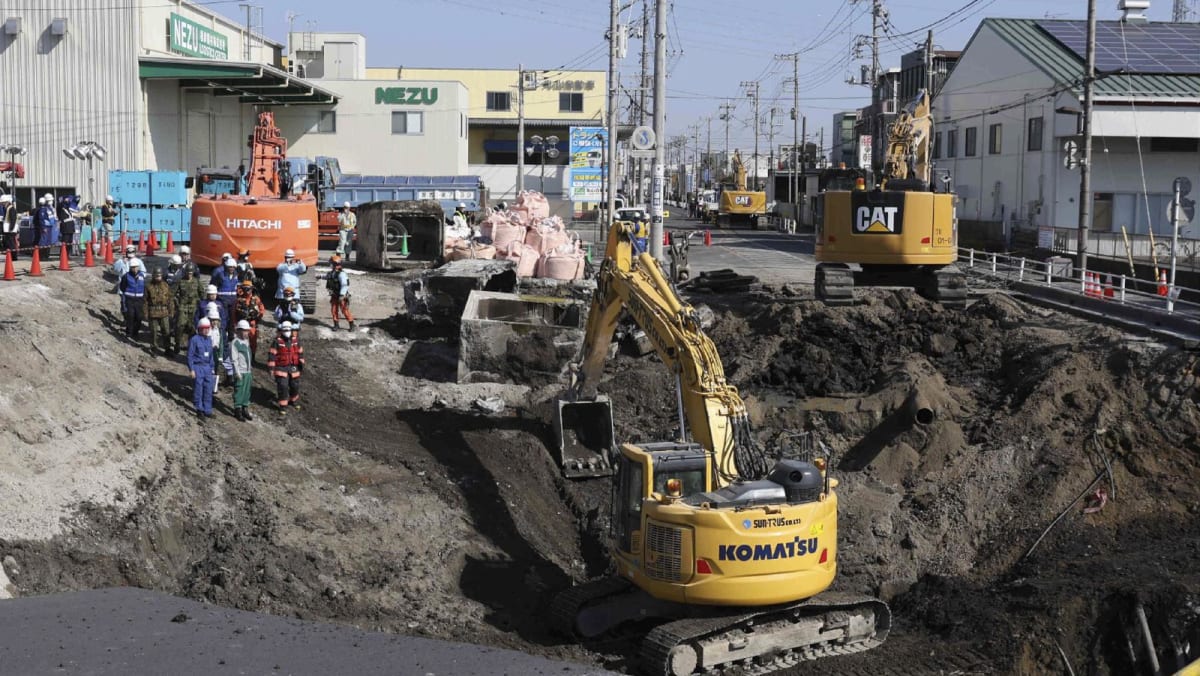BANGKOK: Thailand’s plans for a Bangkok-based Formula 1 (F1) race could be gaining speed, a move which some experts say could boost local and regional business and tourism, though others warn of potential costs.
While the kingdom has expressed its keenness to host a major motorsports race since last year, recent developments have seemingly brought a high-octane race through the streets of the Thai capital closer to reality.
Earlier this year, local media reported that state agencies were studying the feasibility of a Bangkok Grand Prix, with talks held to evaluate potential routes and obstacles. A working committee has reportedly chosen the capital's Chatuchak area as the preferred location for the race’s route.
CNA also found that the Thailand Convention and Exhibition Bureau (TCEB), a public organisation created to promote the country’s business events, recently engaged a motorsports consultancy company to help boost its bid for a street race.
Documents seen by CNA show the TCEB contracted an Australian motorsport consultancy group late last year to act as the coordinating representative for Thailand’s official F1 bid.
Dante Motorsport, trading as Gardini Motorsport, and under the directorship of track design and street circuit technical specialist Simon Gardini, was contracted to receive AU$50,000 (US$31,500) to produce a report to “investigate the hosting of Thailand’s first Formula 1 event”.
The key objectives of Gardini Motorsport’s “coordinator services” were to assist in the strategic selection of racetracks, cost advice, technical discussions, brand awareness and commercial models for maximising revenue.
It was also to represent TCEB in technical meetings with Formula One Group and provide TCEB with “a better understanding of the economic and social benefits and costs, direct and indirect, of staging this major sporting event”.
The Gardini Motorsports report was due to be completed by Jan 1 this year. TCEB officials declined to comment about the findings or recommendations made in the report, with one representative telling CNA that they preferred all messaging about the potential race to “come from the Prime Minister’s office” in the months to come.
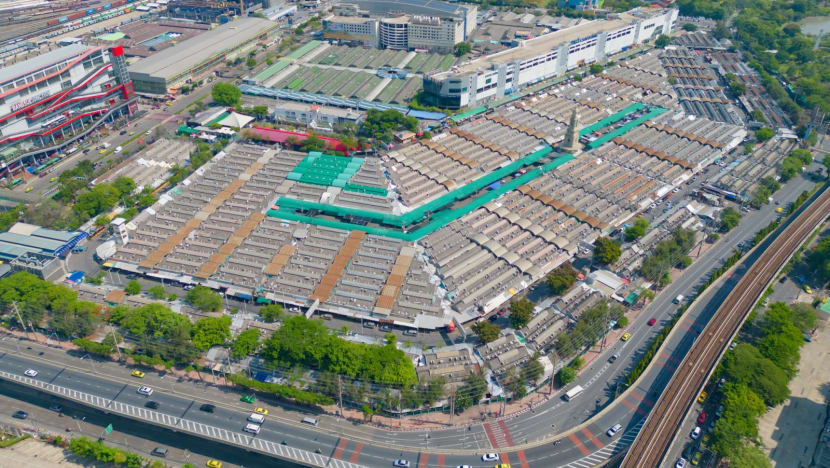 An aerial view of the Chatuchak area showing the market and part of Chatuchak Park and Kamphaengphet Road. (Photo: iStock/tampatra)
An aerial view of the Chatuchak area showing the market and part of Chatuchak Park and Kamphaengphet Road. (Photo: iStock/tampatra)
While Thai officials are currently keeping quiet, some experts and local businesses are looking forward to the economic and tourism boost such an event could bring to the country and region, while others warn it could come at a net cost to society.
Over the past year, Thai leaders have made public statements about their keenness to bring the world’s premier motorsport to the country.
Former Prime Minister Srettha Thavisin pitched a Grand Prix in Thailand early in 2024 as a means to boost the country’s tourism sector and global reputation.
In March, he met with F1 chief executive Stefano Domenicali in Paris before inviting sports officials to Bangkok a month later to survey potential track routes in the city.
While Srettha was ousted from the leadership position in August, his successor Paetongtarn Shinawatra has also expressed her determination to bring F1 to Bangkok.
Another senior government official with knowledge of the process told CNA that Thai decision-makers were keeping quiet on the matter at the behest of F1 management, which declined to comment on the bidding process.
A previous attempt by the Thai government to woo F1 to the country was derailed more than a decade ago, despite positive signals at the time that a deal had been secured.
In 2012, Kanokphand Chulakasem, the then-governor of the Sports Authority of Thailand said “we expect to get the rights to host a Grand Prix from 2014”, however, no contract was signed amid difficulties securing an appropriate track location and protests from resident groups.
During a news conference in October last year, the president of TCEB expressed confidence in Thailand’s ability to host the race.
"If the 2027 Formula 1 race is held, it will be a major boost for the country. We can see that hotel rates in Singapore during the F1 season are three times higher than usual," Chiruit Isarangkun Na Ayuthaya said.
The F1 season currently has 24 races and while most circuits are locked in with multi-year contracts, there appears to be at least one available slot in 2027, with the Dutch Grand Prix to no longer be held after 2026 and the Belgian Grand Prix shifting to a bi-annual rotation.
Italy may also lose one of its current Grand Prix races, with the Imola expiring at the end of this season.
Thailand is not the only contender in the bidding race though, with rival submissions expected from organisers in South Africa and Rwanda. Authorities in South Korea and Argentina have also previously expressed interest.
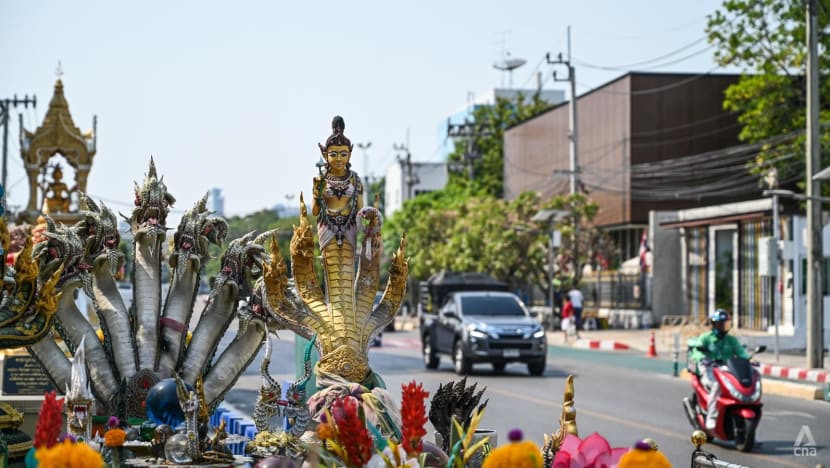 F1 cars would feasibly race around a three-park complex in northern Bangkok. (Photo: CNA/Jack Board)
F1 cars would feasibly race around a three-park complex in northern Bangkok. (Photo: CNA/Jack Board)
A GLOBAL SHOWCASE
Thailand is eyeing the commercial and tourism opportunities presented by major sports events. The F1 bid would be a cog in the government’s Ignite Thailand campaign, an initiative to make the country a global hub for tourism, infrastructure, events and culture.
But it would not be the nation’s first foray into major sports tourism, which is emerging as a key strategy for growth.
This year, the Tourism Authority of Thailand (TAT) is promoting its "Amazing Thailand Grand Tourism and Sports Year”, which includes hosting the Wai Kru Muay Thai Ceremony in March, the FIVB Volleyball Women’s World Championships, the Bangkok Marathon and SEA Games.
It also hosts an annual MotoGP motorcycle race in Buriram in the east of the country, which generated US$140 million in economic circulation in 2024 and created close to 7,000 job positions at the circuit, according to the tourism authority.
F1 carries prestige that these other events cannot match, according to Matthew Marsh, a Singapore-based motorsport and marketing specialist at EDJ Motorsport.
“Hosting a Grand Prix allows a city or country to showcase itself on a world stage, alongside others in an exclusive club,” he said.
“It offers the kind of international exposure provided by the Olympics or FIFA World Cup but at a fraction of the cost and with the added advantage of being repeated annually rather than a one-off.”
TAT’s deputy governor for marketing communications, Nithee Seeprae, told CNA that sports tourism allows it to target visitors with “higher spending patterns” and create “multiplier effects” by attracting both tourists and international investment and spending from commercial partners.
“The F1 race aligns with the nation's broader tourism campaigns, to enhance year-round travel and highlight Thailand's cultural and geographical diversity,” he said.
“Such a high-profile event would amplify Thailand’s appeal to affluent global audiences, fostering economic benefits and international recognition.”
The timing to lure F1 to Thailand appears good. As a sport, it has grown to new heights in recent years, following the takeover by Liberty Media in 2017 and the burgeoning popularity of the Netflix Series “Drive to Survive”, which chronicles each racing season and its drivers.
“F1 has been transformed from an international motorsport series to a global entertainment and lifestyle platform. This shift makes Southeast Asia a more viable market for F1 expansion,” Marsh said.
He noted that the sport has become more popular among a younger and more gender-balanced audience too.
One-third of today’s F1 fans started following the sport in the last four years. Women now make up approximately 41 per cent of the fanbase, according to a report released by Nielsen Sports in December. "And 40 per cent of F1’s audience is now aged 16-34," Marsh said.
In 2024, F1 reported a 27 per cent increase in social media following from Asia, contributing to a regional fan base of 386 million - just over half of the sport’s global total.
The combination of shifting demographics and the allure of a new circuit in a vibrant city like Bangkok could prove exciting, Marsh said, and raise the profile of the sport more globally than a return to a traditional and previously used track like Sepang in Malaysia, for example.
“A race in Thailand would be entirely different to anything seen before on the F1 calendar. It would be a destination event for existing fans and help attract new ones from Southeast Asia, he said.
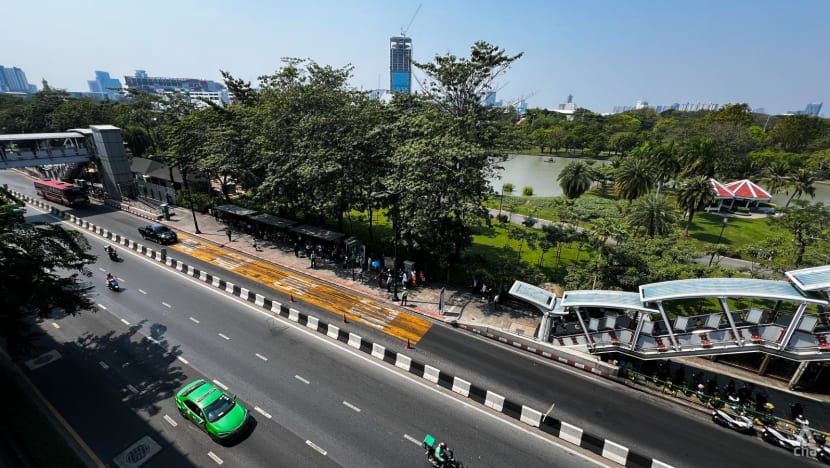 Vibhavadi Rangsit Road and Kamphaengphet Road are major arteries in Bangkok that could be used to race. (Photo: CNA/Jack Board)
Vibhavadi Rangsit Road and Kamphaengphet Road are major arteries in Bangkok that could be used to race. (Photo: CNA/Jack Board)
A CONCRETE JUNGLE CIRCUIT?
A race in Bangkok would mean two annual races in the region, alongside the Singapore GP, which has been on the calendar in its Marina Bay circuit form since 2008. It was the first night race in the sport’s history and the first street race in Asia.
While the Bangkok edition would be unlikely to be held at night, local decision-makers appear set to greenlight an urban track layout.
Based on the agreement between TCEB and Gardini Motorsport, three potential street circuits for the race were being considered, including street tracks within and outside Bangkok, as well as a permanent circuit located away from the capital.
Local media reports in recent months suggest that an organising working group preferred a street setup in the Chatuchak area of Bangkok. It would feasibly loop around three public parks - Chatuchak Park, Queen Sirikit Park and Wachira Benchathat Park, from where spectators could view the action.
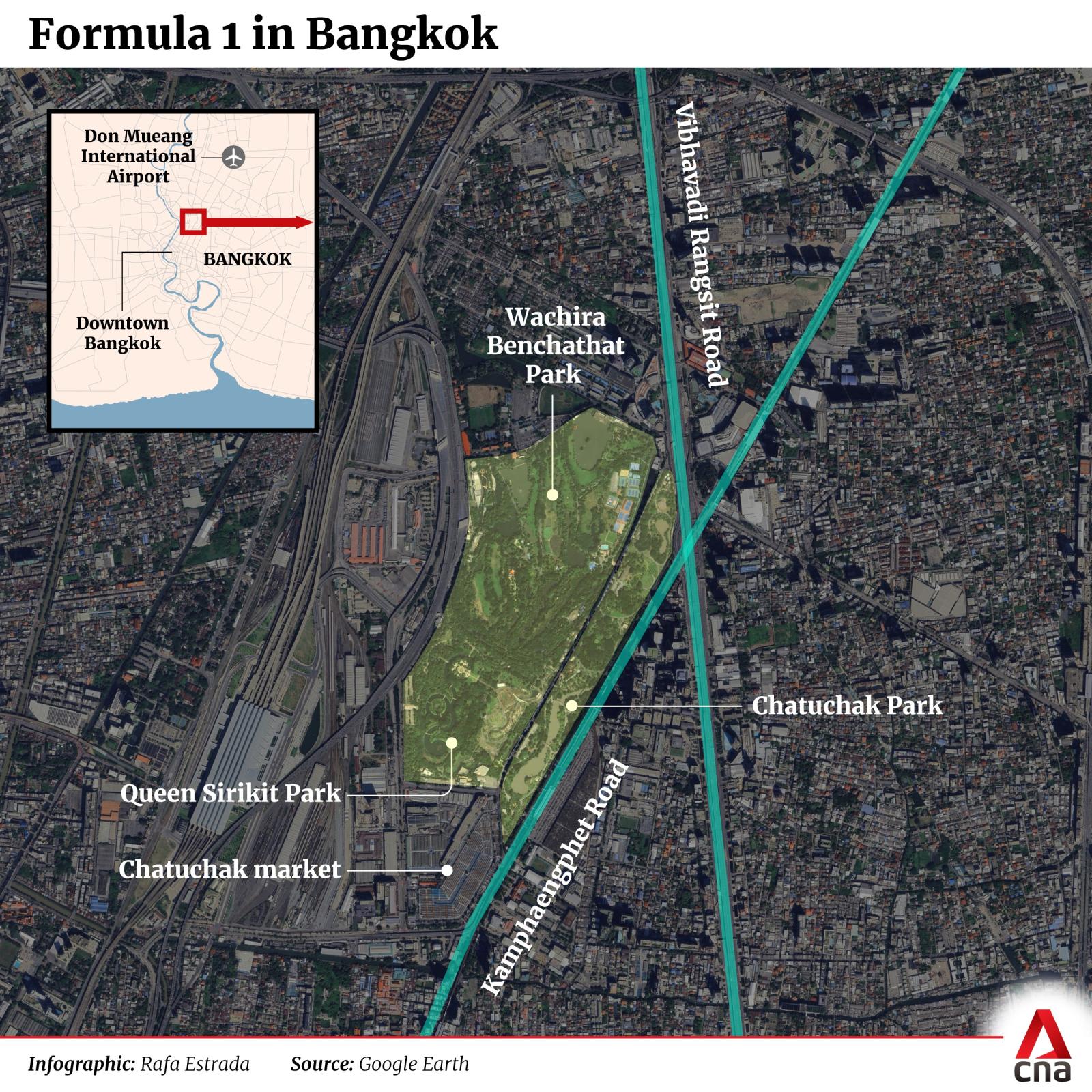
It is far from an iconic location but rather a pragmatic one to accommodate large crowds, following the 2012 proposal to race through Rattanakosin Island, the historic part of Bangkok that is home to the Grand Palace and Temple of Dawn, which raised concerns about pollution and damage to antiquity sites.
The Chatuchak route would likely rather centre on major traffic thoroughfares - Vibhavadi Rangsit Road and Kamphaengphet Road, which presently act as major arteries in the northern part of the city.
Chatuchak Weekend Market is a major tourist draw, for sale of the likes of clothing, furniture, homewares and exotic animals. However, beyond the market itself, much of the surrounding area is a concrete jungle, featuring shuttered buildings and a lack of commercial or cultural activity.
A local restaurant operator in the area, who referred to herself only as Pa Thong, said she had heard nothing about the possibility of high-speed racing vehicles taking to the streets in front of her business but was open to the idea if she could continue to operate throughout the event.
“An event is always good for our sales. The government should not ask us to stop our business for any events,” she said. “ But I think these roads are not made for car racing.”
Paying closer attention to the developments is Pongsorn Hovichitr, the creator and administrator of the F1 Thailand Fanclub group and page on Facebook, which have 43,000 members and 98,000 followers respectively.
Pongsorn was inspired to follow F1 during the heady days of Michael Schumacher dominating the sport in the early 2000s. And while it is growing more popular today, he recognises that local fans will not be the priority in organising a Thailand GP.
“The government should view F1 as an opportunity to open the country to the world, not for Thai people,” he said.
“We have to do it like Singapore, not like Japan, which attracts locals. This is for foreigners who will bring more income. We will have to pay a lot of money to host this and we need to draw a lot more money from outside.
“But of course, Thai people who love to watch F1 will have easier access to it,” he added.
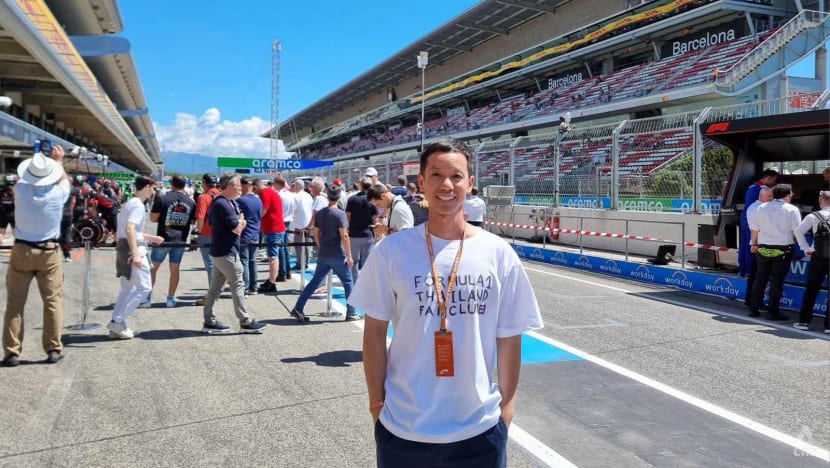 Pongsorn Hovichitr, the creator and administrator of the F1 Thailand Fanclub group, at the Barcelona GP in 2024. (Photo: Supplied)
Pongsorn Hovichitr, the creator and administrator of the F1 Thailand Fanclub group, at the Barcelona GP in 2024. (Photo: Supplied)
COSTS AND BRANDING
The Singapore event has been flagged as an important driver for tourism, economic activity and exposure - the same outcomes Thailand is looking for.
The racing events in Singapore have raised S$2 billion (US$1.5 billion) in incremental tourism receipts since its inception and attracted a global viewership of more than 1 billion people. The vast majority of businesses subcontracted to prepare and cater to the Grand Prix are local.
The projected economic benefits to Singapore outweigh the costs to the government, Minister for Trade and Industry Gan Kim Yong told parliament in 2022. The government co-funds 60 per cent of approved costs, he said at the time.
“It proved that an F1 race could be - should be - more than just a motorsport event,” Marsh said.
“Ultimately it all depends on commercial potential, whether directly - in the form of the hosting fee a country is prepared to pay - or more broadly,” he said.
But Christian Gjersing Nielsen, a senior analyst at the Danish Institute for Sports Studies warns that events like F1 which he has extensively studied in Europe, seldom deliver a positive net economic outcome for hosts.
“More or less, the consensus among economists is that hosting large sporting events is not an efficient use of taxpayers’ money,” he said.
“Almost all research on major sporting events tends to suggest that in the best case, the effects on the economy are marginal. In the worst cases, it's negative, and in most cases, the effect is so small that you can't measure it because it's a drop in the ocean of the total economy.”
The Thailand race could generate about 4 billion baht (US$117 million) in economic value and generate more than 1,000 jobs, Tourism Vice-Minister Jakkaphon Tangsutthitham wrote on X. No proposed costs for hosting the event have been made public.
But Nielsen argued that often it is large lobbyists and special interest groups that are primed to reap the benefits of such economic returns. “So if you look at the society as a whole, it might be a net cost to society,” he said.
Malaysia dropped its F1 race in 2017, primarily for financial reasons. Existing Grands Prix in Europe have also faced both financial restraints and a lack of public support while new proposed races in the United States have not gone ahead due to the high costs demanded by F1.
What is less tangible are the “soft power arguments”, like happiness, pride and indirect economic benefits that can arise from hosting a sporting event with such global exposure.
There is little data to measure such impacts or even whether a motorsports event like F1 - an event with environmental impact associations and elitism - will produce a positive image or a negative issue, Nielsen said.
“Branding is always something that is put forward. It will brand our country. It will brand the city,” he said.
“Bangkok is already a very well-known city throughout the world. I don't think it will make a huge difference.”
Additional reporting by Grissarin Chungsiriwat.

